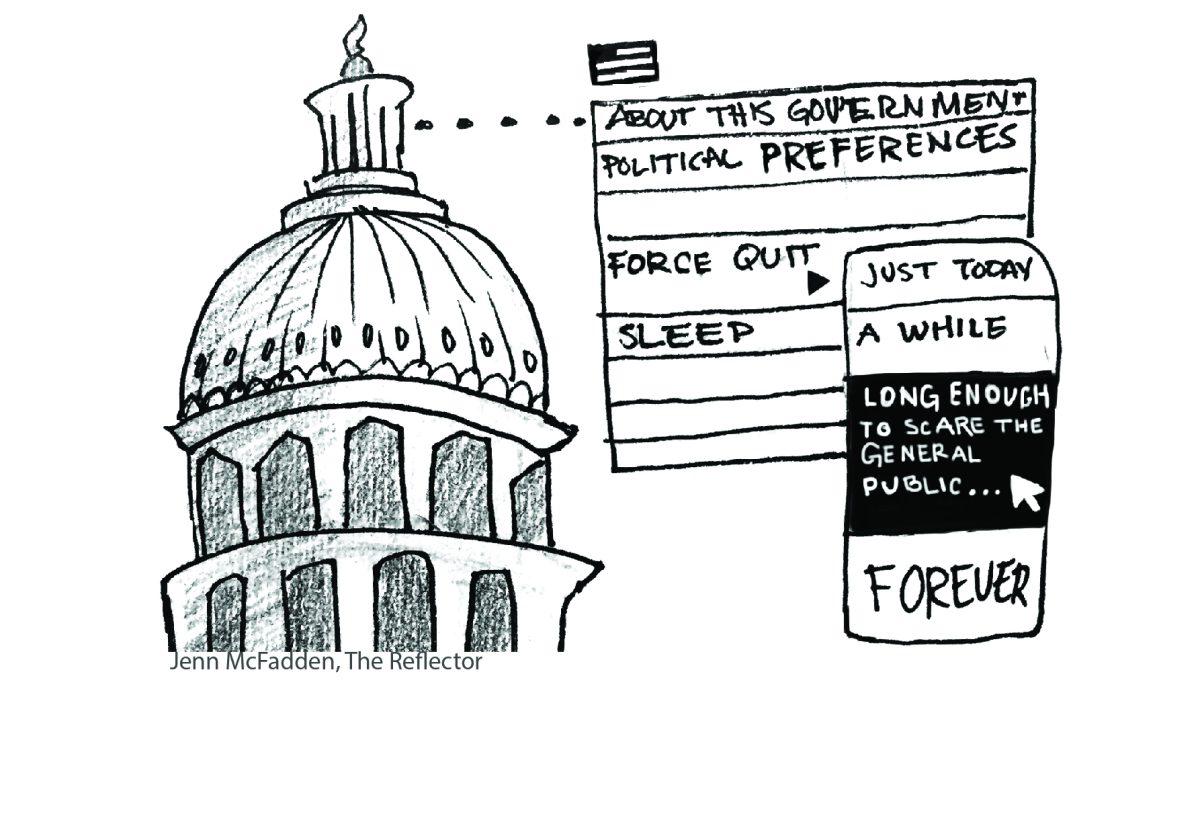The most recent government shutdown lasted only a weekend, but its consequences will reach further politically.
First, a quick rundown on the events. According to Sarah Binder and Mark Spindel with The Washington Post, the government has funded itself piecemeal since October 2017, which was the beginning of the 2018 fiscal year.
This concept is not new, however. The same article from The Washington Post states it has been 20 years since Congress successfully funded itself on time, and if it cannot fund itself on time, the government shuts down.
A shutdown sounds scary, but in reality, it is simply the government cutting off all non-essential functions to continue operating without enough money.
What you need to know: the military still works, taxes are still deducted and Congress is still in session. Usually, Congress just buys more time to fund itself by enacting a “continuing resolution,” which is a resolution temporarily keeping the shutdown at bay by funding in small amounts.
This past weekend, however, we saw Democrats in the Senate refuse to fund the government without legislation guaranteeing protection for those affected by President Donald Trump’s elimination of the Deferred Action for Children Arrivals, DACA. However, according to Tara Golshan and Dara Lind with Vox, the White House refused to sign any immigration deal until the government was funded. With no budging from Democrats on DACA, no agreement could be reached. Being at a crossroads, the government shut down.
Did it have to shut down? No.
Government shutdowns are a political play, plain and simple. According to Amber Phillips at The Washington Post, Republicans are more divided on immigration reform than most other policies.
Nine Senate Republicans joined a bipartisan group to call for Sen. Maj. Leader Mitch McConnell to commit to DACA legislation, and over two dozen Republican House members called for the same to Speaker Paul Ryan. McConnell and Ryan were simply toeing party lines called for by the president. An issue this divisive in the majority party should not be hard to resolve.
President Donald Trump was not at the center of this debate, however. He called for border wall funding to be in the bill, and then, he simply let the Senate debate.
In a weird way, this is the most presidential thing I think he has done; and for the most part, Trump will emerge from this shutdown unscathed.
However, hundreds of thousands of Americans will not.
Andrew Taylor with PBS News Hour reports a government shutdown causes hundreds of thousands of federal workers to be forced off the job, and those who still work, go without pay until the shutdown is resolved, including members of the military.
Economically, Brad McMillan, contributor to Forbes, estimates 0.25 percent of the GDP is lost per week. While the shutdown did not last long, the government is not correctly funded right now, either. The Senate only passed a stopgap spending bill, one of those continuing resolutions, to stop the shutdown on Jan. 22, which means the problem comes back in several weeks.
None of this had to occur, or at least, the government shutdown accomplished nothing. Democrats got nothing from this new continuing resolution they did not already have.
According to Binder and Spindel at The Washington Post, Senate Democrats got Mitch McConnell’s promise DACA legislation would hit the Senate floor once the government is funded, but a promise in D.C. is worth as much as a penny: more expensive to make than it is actually worth.
If all Democrats needed was a promise, they should not have put millions of Americans’ paychecks in limbo. Republicans may have been bull-headed, but they knew what they wanted and got it, which is more than I can say about the Democratic party.



















































































